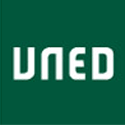PGCert Education Practice - Postgrado en Práctica Educativa
Imparte:
Bournemouth University-
Imparte:
-
Modalidad:Online
-
Precio:All fees are quoted in pounds sterling and are per year.
There is a varied range of scholarships available.
For full-time study, for qualifications such as MA, MSc and LLM:
UK, CI and ROI students: £8,500-£11,500
International students: £17,000-£22,000 -
Comienzo:Septiembre 2026
-
Lugar:Se imparte Online
-
Duración:1 Año
-
Titulación:PGCert Education Practice
Gain the core knowledge, skills and professional values to develop and enhance your practice as an educator in Higher Education.
A Bachelors Honours degree with 2:2 in any subject. Applicants should be teaching in a practice or academic setting.
International entry requirements:
IELTS (Academic) 6.5 with a minimum of 5.5 in each component of speaking, listening and reading.
Engage in a variety of learning, teaching and assessment practices that support and underpin your own learning
Engage with educational scholarship relevant to your professional educational activities
Develop discipline-specific strategies for teaching and learning, which are informed by research and reflection
Develop effective and dynamic approaches to teaching and learning through creativity, innovation and continuous reflective development
Study online and work ´anytime´ on activities, reading and assignments.
Principles of Learning & Teaching in Higher Education: This unit focuses on the theory and practice of learning and teaching in higher education. You will be equipped to understand and support your own students´ learning experience through investigating theories and methods of supporting learning, teaching and assessment. You will be encouraged to move beyond generic theories in order to develop approaches with have disciplinary specificity.
The Contexts of Higher Education Practice: Through addressing the contexts for higher education, including national and institutional levels, this unit will provide opportunities for you to investigate and understand the impact of political, social, economic, global, technological and institutional factors on your educational practice. You will identify a particular area for investigation, relate the research to the evidence, and consider possible developments in the future.
Developing & Reflecting on Higher Education Practice: This unit is designed to enable you to engage in a continuous process of reflection on, and development of, your own professional practice. Reflection is a valuable way of dealing with difficult or challenging situations, it is a way of exploring and explaining events, revealing anxieties and weaknesses, as well as identifying successes and strengths. Ultimately it is designed to provide ways of understanding the past and present in order to develop more effective ways of being and acting in the future.







